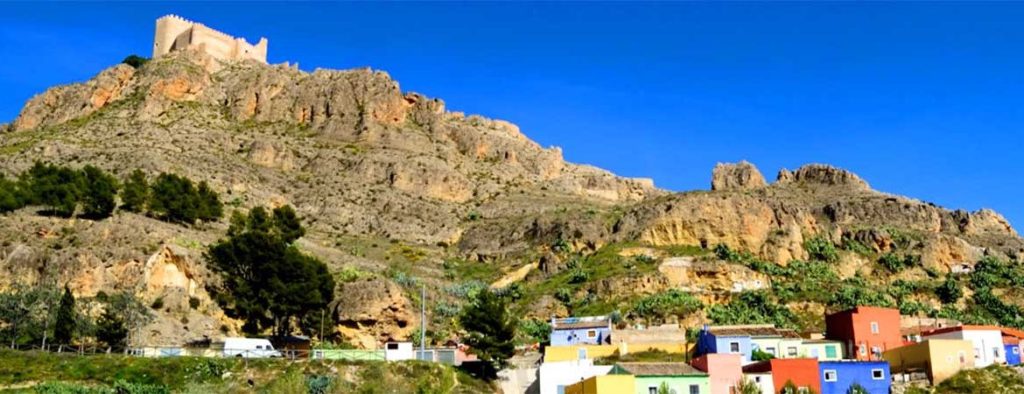
Situated in southeastern Spain, the Jumilla Denominación de Origen Protegida (DOP) encompasses areas in the Murcia region and parts of Albacete province. Established in 1966, Jumilla has garnered attention for its robust red wines, particularly those made from the Monastrell grape, which thrives in the region’s arid climate and diverse soils.
Geography and Climate
Jumilla’s vineyards are located at elevations ranging from 400 to 800 meters above sea level. The region experiences a continental climate characterized by hot summers, cold winters, and low annual rainfall averaging around 300 mm. These conditions, combined with over 3,000 hours of sunshine per year, contribute to the development of grapes with concentrated flavors and balanced acidity.
Soil Composition
The soils in Jumilla are predominantly limestone-based, with variations including sandy and clay components. These well-draining soils are low in organic matter but retain sufficient moisture, allowing vines to withstand prolonged periods of drought. The soil’s composition also imparts distinct mineral characteristics to the wines produced in the region.
Grape Varieties
Red Grapes:
- Monastrell: Accounting for over 80% of the region’s red grape plantings, Monastrell is known for producing deeply colored wines with rich tannins and flavors of dark fruit and spice.
- Others: Tempranillo, Garnacha, Syrah, Cabernet Sauvignon, Merlot, and Petit Verdot are also cultivated, often blended with Monastrell to add complexity.
White Grapes:
- Airén, Macabeo, Pedro Ximénez, Malvasía, Chardonnay, Sauvignon Blanc, and Moscatel de Grano Menudo are among the white varieties grown, producing wines ranging from fresh and aromatic to rich and full-bodied.
Wine Styles
- Red Wines: Predominantly made from Monastrell, these wines are known for their intensity, structure, and aging potential.
- Rosé Wines: Produced mainly from Monastrell, offering fresh and fruity profiles with vibrant acidity.
- White Wines: Crafted from various white grape varieties, these wines range from light and zesty to more complex and textured expressions.
- Sweet Wines: Made from overripe grapes, these wines exhibit concentrated sweetness balanced by acidity.
Notable Wineries in Jumilla
- Bodegas Juan Gil: Established in 1916, this family-run winery is renowned for its Monastrell-based wines that showcase the grape’s depth and versatility.
- Bodegas Luzón: Combining traditional methods with modern technology, Bodegas Luzón produces a range of wines that reflect the region’s terroir.
- Bodegas Carchelo: Known for its commitment to quality and innovation, producing wines that balance fruit expression with elegance.
- Bodegas Silvano García: A historic winery offering a diverse portfolio, including red, white, and sweet wines that capture Jumilla’s character.
- Bodega Madrid Romero: A family-owned estate focusing on sustainable practices and producing wines that express the nuances of their vineyards.
- Viñedos y Bodegas Asensio Carcelén: Specializing in Monastrell, this winery emphasizes traditional viticulture and minimal intervention in the cellar.
- Bodegas Fernández: Combining heritage and innovation, they produce a variety of wines that highlight the region’s potential.
- Bodega Ego: A modern winery aiming to craft wines that appeal to contemporary palates while respecting traditional techniques.
- Bodega Cerrón: Practicing biodynamic viticulture, they focus on producing wines that are expressive of their high-altitude vineyards.
- Bodegas Viña Elena: With roots dating back to 1948, this family winery produces wines that reflect the authenticity of Jumilla’s terroir.
Visiting Jumilla
Jumilla offers a rich enotourism experience, with opportunities to visit wineries, participate in tastings, and explore the region’s cultural heritage. The annual “Matavendimia” festival celebrates the end of the harvest with various activities, including wine tastings, concerts, and guided tours of historical sites like the Castillo de Jumilla.
![]()